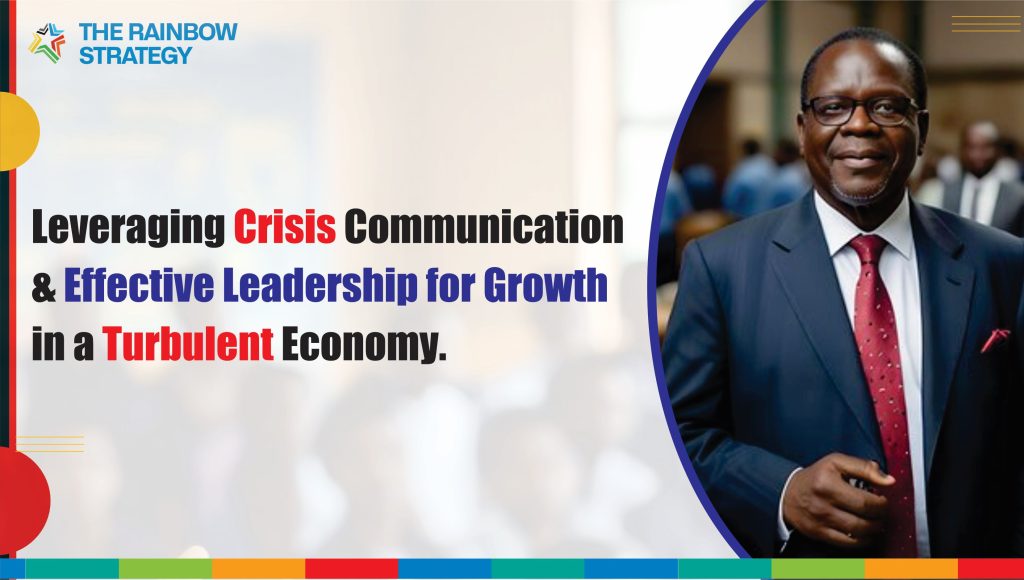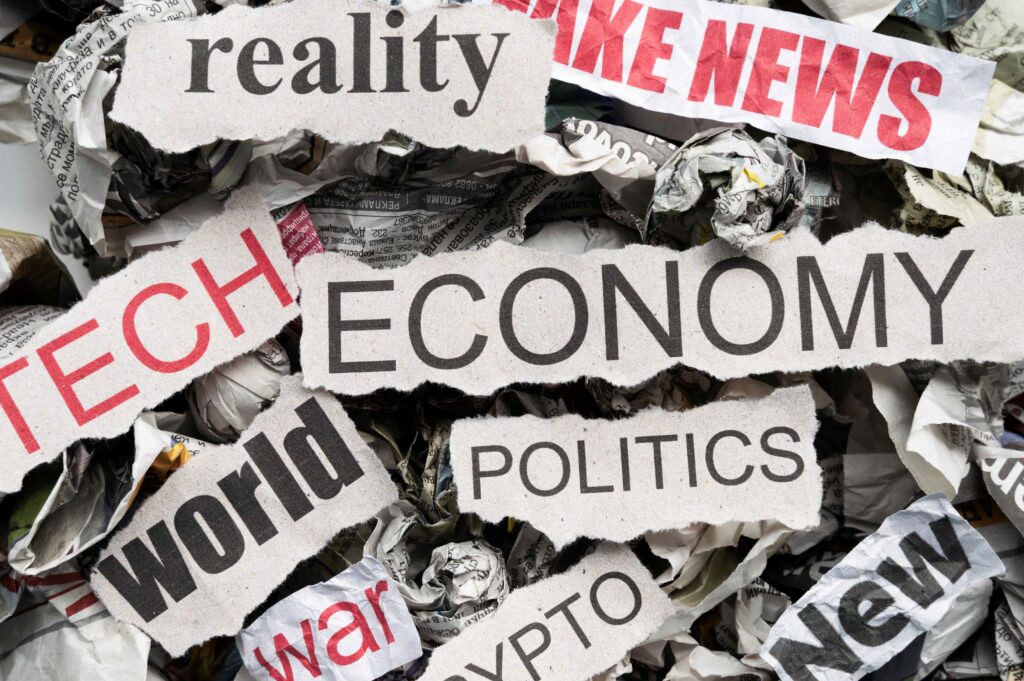In the face of the current economic challenges, there’s a need for Nigeria to leverage effective leadership and communication strategies for national development.
Nigeria’s current economic situation is characterized by a complex interplay of global economic pressures, domestic challenges, and lingering effects of the COVID-19 pandemic. In this environment, decisive actions are crucial to mitigate economic instability and foster growth. However, making bold decisions is not enough; leaders must ensure that policies are consistent and coherent, as frequent changes, as we are presently witnessing, can undermine investor confidence and exacerbate economic uncertainty.
Earning public trust is a critical factor in successfully navigating these challenges. Leaders need to communicate transparently and effectively with the public, explaining the rationale behind their decisions and demonstrating a commitment to the nation’s long-term well-being. Building and maintaining this trust is essential, as it ensures public support for necessary but potentially unpopular measures, and helps to stabilize the socio-political environment, which is vital for economic recovery and growth.
The Role of Crisis Communication
Crisis communication is a strategic approach used to manage and mitigate the impact of a crisis on an organization or country, particularly during economic downturns. Its primary goal is to manage public perception, maintain stakeholder confidence, and guide the organization or nation through challenging times. During crises, how a leader communicates can shape the public’s understanding and response. Clear, honest communication helps prevent misinformation, reduces panic, and builds trust among the public. Effective crisis communication reassures stakeholders such as investors, employees, customers, and the public that the situation is under control, that there is a plan in place, and that their interests are being protected. This confidence is crucial for maintaining stability and ensuring continued support during turbulent times.
Leadership in Crisis
Effective leadership is crucial to navigating challenges and steering an organization or nation towards stability and growth in a crisis. The essential qualities needed include remaining steadfast and composed in the face of adversity and adapting to rapidly changing situations without losing focus or morale. A clear and forward-thinking perspective allows a leader to see beyond the immediate crisis, setting long-term goals and guiding others towards a positive outcome. The capacity to make timely and firm decisions, even when information is incomplete or circumstances are uncertain, ensuring swift action to address the crisis. The ability to inspire confidence and motivate others, rallying teams and stakeholders around a common cause, and encouraging collective action to overcome the crisis. These qualities enable leaders to manage crises effectively, build trust, and lead their organizations or nations through challenging times.
Here are examples of Nigerian and global leaders who successfully managed crises.
- Ngozi Okonjo-Iweala (Nigeria).
The Crisis: Managing Nigeria’s economy during the global financial crisis of 2008 and the subsequent oil price collapse.
As Minister of Finance, Okonjo-Iweala implemented economic reforms, negotiated debt relief, and focused on fiscal discipline. She also created the Sovereign Wealth Fund to buffer against future shocks.
Lesson: Proactive Planning and Institutional Reforms are crucial for long-term stability. Having financial buffers and diversifying the economy can protect against external shocks.
- Nelson Mandela (South Africa)
The Crisis: Transition from apartheid to a democratic South Africa.
Mandela led with a focus on reconciliation and nation-building, promoting unity and forgiveness while addressing systemic inequalities.
Lesson: Inclusive Leadership and Visionary Thinking can heal deep societal divisions and guide a nation through transformative change.
- Franklin D. Roosevelt (United States)
The Crisis: The Great Depression and World War II.
Roosevelt introduced the New Deal, a series of economic programs aimed at recovery, and led the country through WWII with strong communication and decisive action.
Lesson: Bold Initiatives and Effective Communication are key to restoring confidence and rallying a nation during prolonged crises.
- Muhammad Sanusi II (Nigeria)
The Crisis: The 2009 Nigerian banking crisis.
As Governor of the Central Bank of Nigeria, Sanusi implemented reforms, recapitalized banks, and introduced tighter regulations to stabilize the financial sector.
Lesson: Regulatory Oversight and Swift Action in financial systems can prevent systemic collapse and restore trust.
- Angela Merkel (Germany)
The Crisis: The European Debt Crisis and the 2015 Migrant Crisis.
Merkel led with pragmatism, advocating for austerity measures in debt-stricken Eurozone countries and showing compassion during the migrant crisis while balancing political pressures.
Lesson: Pragmatic Leadership and Balanced Decision-Making can navigate complex, multi-dimensional crises effectively.
The Intersection of Leadership and Communication
Effective communication and strong leadership are crucially interlinked in building trust, managing expectations, and guiding a nation through economic uncertainty.
Strong leaders communicate openly about challenges and decisions, fostering transparency. This honesty builds public trust, as people feel informed and valued. Also, Consistent messaging from leadership reinforces reliability and trustworthiness, ensuring that the public believes in the leadership’s competence and intentions.
Clear communication helps manage public expectations by explaining the realities of the economic situation and the steps being taken to address it. This reduces uncertainty and panic. Leaders who communicate with empathy acknowledge the difficulties people face, aligning with their concerns and helping to manage expectations realistically.
Effective communication of a clear vision and strategy by strong leaders provides direction and hope, helping to guide the nation through turbulent times. Through persuasive and motivational communication, leaders can rally the public, businesses, and other stakeholders to work together towards overcoming economic challenges.
The synergy between effective communication and strong leadership can never be over-emphasised.
In conclusion, crises can serve as powerful catalysts for leadership to drive transformative change, implement necessary reforms, and lay the foundation for long-term growth. During a crisis, the urgency to act often breaks down resistance to change, creating a unique opportunity for leaders to introduce bold reforms that might have faced opposition in more stable times. These moments of disruption can reveal underlying weaknesses in systems, prompting leaders to address them with innovative solutions and strategic investments.
By effectively communicating a clear vision and rallying stakeholders around common goals, leaders can turn the challenges of a crisis into opportunities to reshape policies, streamline operations, and foster resilience. This proactive approach not only helps in navigating the immediate crisis but also sets the stage for sustainable growth by building stronger, more adaptable systems that are better equipped to handle future challenges. In essence, crises, when managed with foresight and decisiveness, can be leveraged to achieve lasting positive change and propel a nation or organisation towards greater stability and prosperity.








